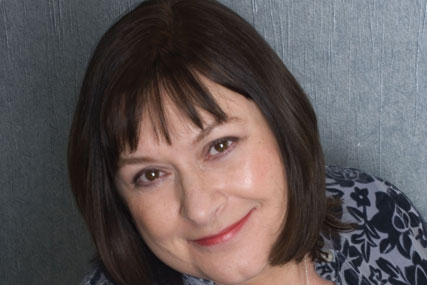Since arriving at Thinkbox 4 years ago, I’ve been attending the big TV industry talk-fests armed with an umbrella, a box of tissues and a bottle of Prozac, ready for the clouds, the weeping and the threats of suicide.
It’s been hard work trying to cheer up senior TV execs; the fact that TV increased its share of advertising in 2008 and 2009 meant nothing while the recession was devastating its advertising income.
But at this week’s RTS International Conference the mood felt very different - and not just because TV advertising is growing faster than in any other sector in 2010, by more than 12% reportedly.
I think it was more because the TV industry has rediscovered what a great industry it is. It has stopped being scared of ‘the internet’, and is getting on with using this brilliant technology to expand TV through on-demand services, engaging interactive add-ons, and new commercial models.
The impressive line-up of speakers made it clear that TV is now a global, multi-platform, multi-technology content business. We heard from Korean, Italian, German and American experts, alongside all the leading UK TV players and some of the most respected analysts from Deloitte and Enders. Oh, and Google.
In fact, why weren’t you there? I can challenge you with some confidence, because, apart from two people from MediaCom, no other agency or marketer came along, unless they came in disguise and under false names.
Culture secretary Jeremy Hunt was on first, touting his vision of local or city-based TV services. Everyone listened politely, but there was no disguising the mountain of scepticism. No-one denies that there is some demand for local TV (chiefly local politicians needing to get famous?) but a) there’s no advertising business in it and b) wouldn’t it just destroy local radio and newspapers?
There are fewer local advertisers these days and the ones remaining have shifted much of their classified advertising into search. Any demand for ultra-local TV-like media is most likely to be met by community volunteer groups, and not by any commercial media outfit.
After Hunt, the vision for TV widened considerably. Professor Suk-Ho Bang from Korea described what it’s like to have a population equipped with 100 mbps broadband speeds and what that’s done to media consumption.
It’s certainly accelerated their ability to watch TV and films but, with a small indigenous content industry, Peter Smith from NBC bemoaned that it had resulted in half the Korean population regularly pirating films, thereby devastating his business in the country. One thing we have done very right in the UK is to make it easy to watch TV online legally and mostly for free, giving no excuse for piracy.
Francesco Caio of Nomura Bank, a previous CEO of Cable Wireless, cautioned the industry not to develop TV technology too far ahead of where the majority of viewers are prepared to go. In fact, a recurring theme through the day was how resilient linear live TV viewing is, with new technologies from 3D to social media only reinforcing this.
It was fascinating to hear Mike Darcey, the self-confessed Mr Spock of Sky, talk about deep consumer engagement and the emotional reward that mobile Sky apps offer existing Sky subscribers, thereby reducing churn.
Simon Shaps chaired a sparky session on VoD, or TVoD as I think we should be calling it. As Claire Enders pointed out, the vast majority of genuine online VoD viewing is to pornography or UGC, neither of which TV on-demand aspires to.
David Abraham described how on-demand services were helping viewers re-aggregate around quality content. Multi-channel growth had caused fragmentation in the noughties, which impacted most upon the analogue channels, but through a variety of digital channels and on-demand services just as many people, if not more, were now watching the same content.
Did this mean that on-demand services offering films and archive TV had limited appeal? Simon Shaps put pressure on Cindy Rose of Virgin Media to reveal exactly what percentage of viewing in their homes was to non catch-up TV on-demand; she wouldn’t be pushed but he put a number of just 0.2% on it, and that mainly at the expense of DVD rental.
The other two panellists were Matt Brittin of Google and Steve Morrison of All3media, the UK’s largest independent production grouping. It’s great that Google wants to be part of the TV industry, but presumably they came along braced for someone to have a pop at them.
Morrison labelled Google ‘a cowboy’ on the basis that when people search for one of his programmes like Peep Show, an aggregator like SeeSaw (with whom he or C4 has done a distribution deal) might have paid Google for a sponsored link, but he gets no money out of that transaction.
We all want more money for content and it would be nice if Google did put its hand into its very deep pockets, but I think most of the audience thought that Steve should get his deal with SeeSaw sorted out before having a go at Google.
The overwhelming message of the day came from three CEOs: Gerhard Zeiler (RTL), Adam Crozier (ITV) and the awesome Jeff Bewkes (Time Warner). The message was that big broadcast brands have huge opportunities for expansion, but they do not need third party aggregators like YouTube to package up their TV online for them; they should be building their own online TV offerings, of which YouView (Project Canvas) is just one example.
I can’t tell you exactly how things will pan out for TV and whose predictions will end up being validated. But it was bloody marvellous to see the industry with so much optimism and confidence and to hear their energetic plans for TV to take over the world.
Tess Alps, chief executive, Thinkbox


